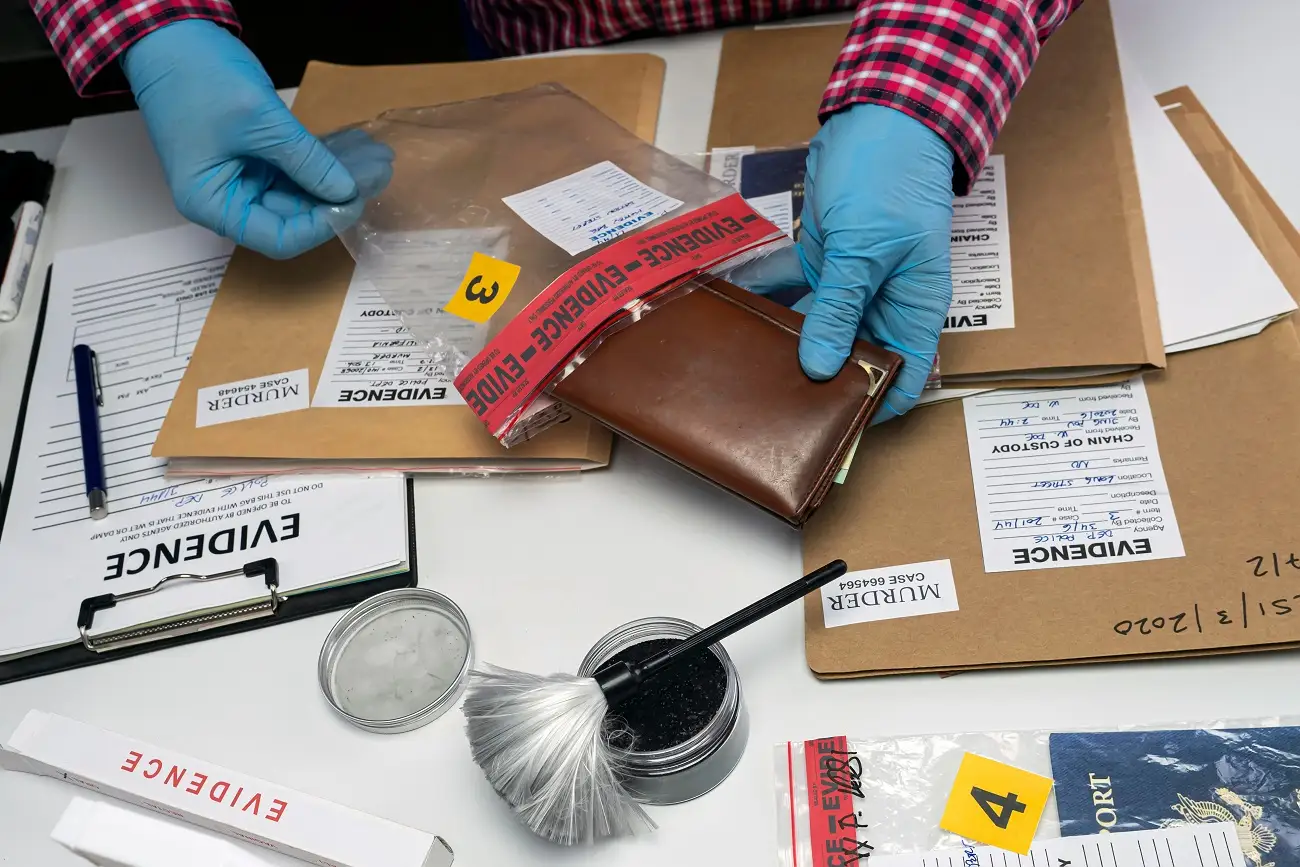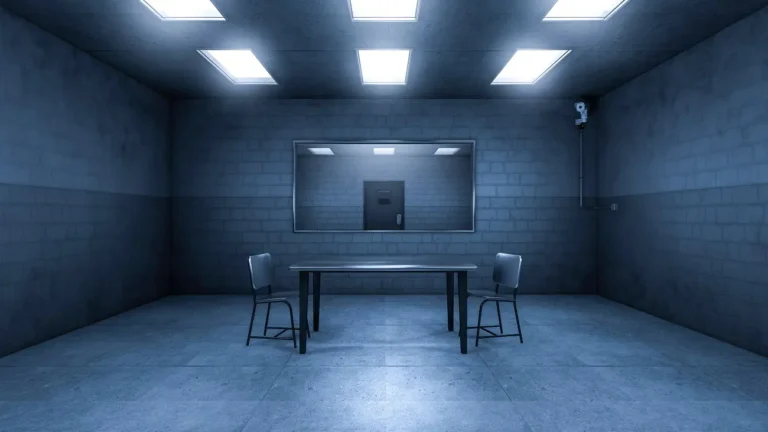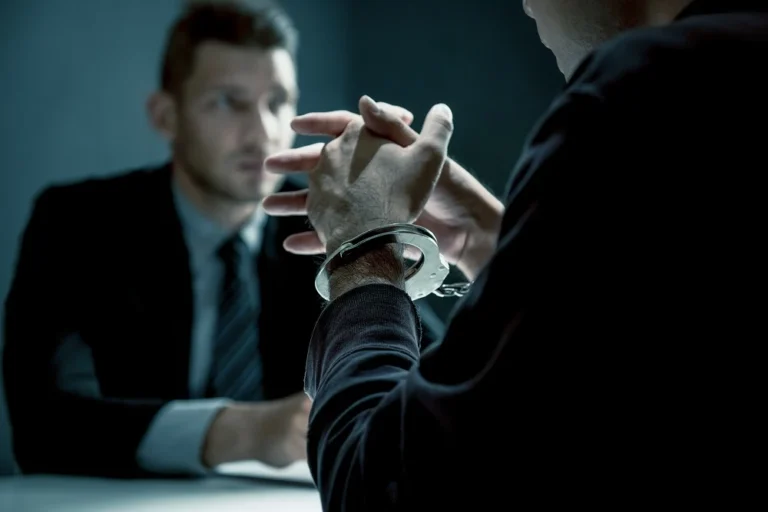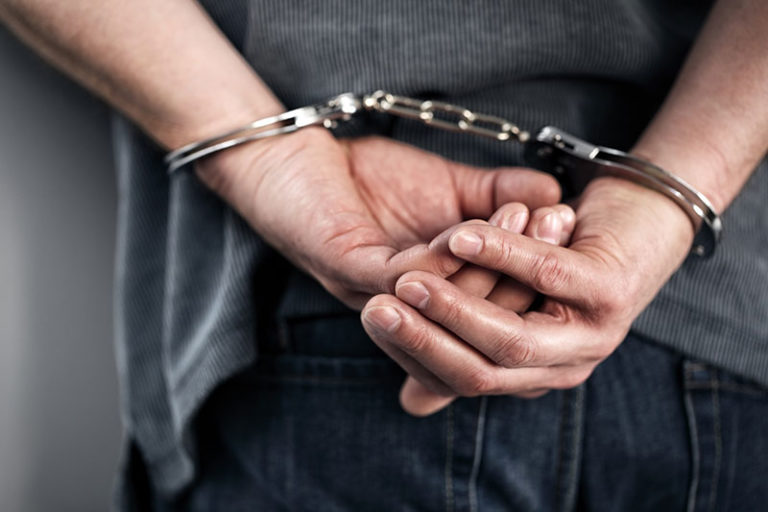When you’re facing criminal charges, you are presumed innocent until proven guilty. The government must gather and present evidence in order to prove that you committed the crime. But what happens if the prosecution doesn’t have enough evidence to prove your guilt beyond a reasonable doubt?
Insufficient evidence can be the key to winning at trial or having charges dismissed altogether. We’ll explore what constitutes insufficient evidence in a criminal case, how criminal defense attorneys in Dayton challenge weak or flawed evidence, and how these challenges could lead to acquittal.
What Does “Insufficient Evidence” Mean in Criminal Law?
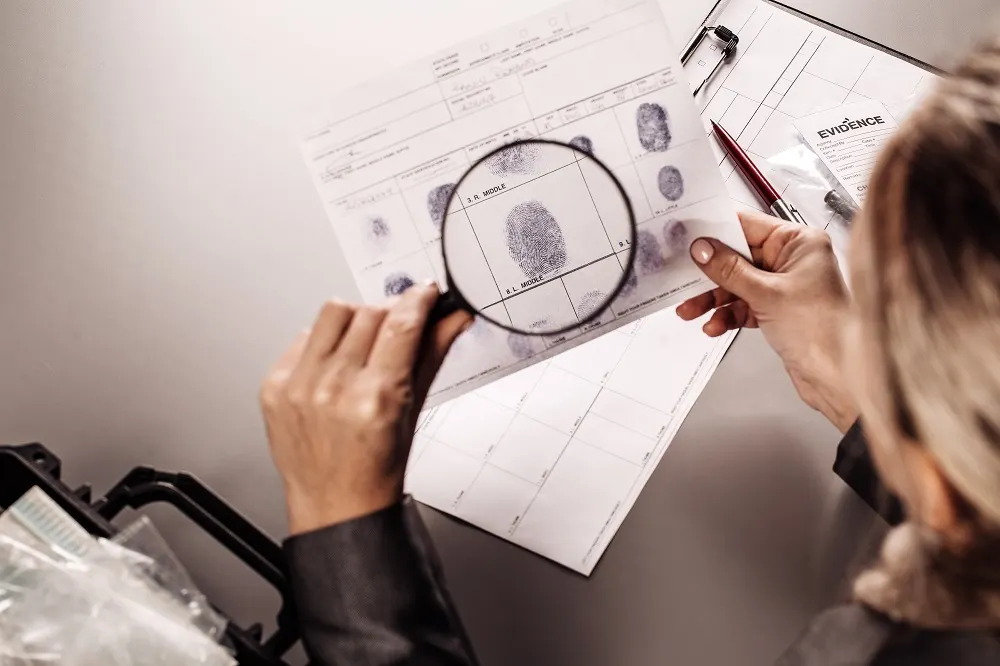
In criminal court, the prosecution must set forth evidence to support its claim that the defendant committed a crime.
A conviction cannot stand on suspicion or assumption. The prosecution must prove each element of a criminal offense beyond a reasonable doubt. To do this, it must present sufficient evidence to establish the defendant’s guilt.
“Insufficient evidence” refers to a scenario where the prosecution cannot meet its burden of proof. This can happen when:
- There is no evidence to directly link the defendant to the crime.
- There is evidence, but it is not credible or reliable.
- There is evidence, but it is inconsistent or contradictory.
- There is evidence, but it is inadmissible in court.
When a defense attorney believes that the State has insufficient evidence to convict their client, they can move to have the case dismissed.
Even if the case continues to trial, there may be too many gaps, contradictions, or weak points in the prosecution’s story, and the judge or jury will return a not guilty verdict.
Types of Evidence in Criminal Cases
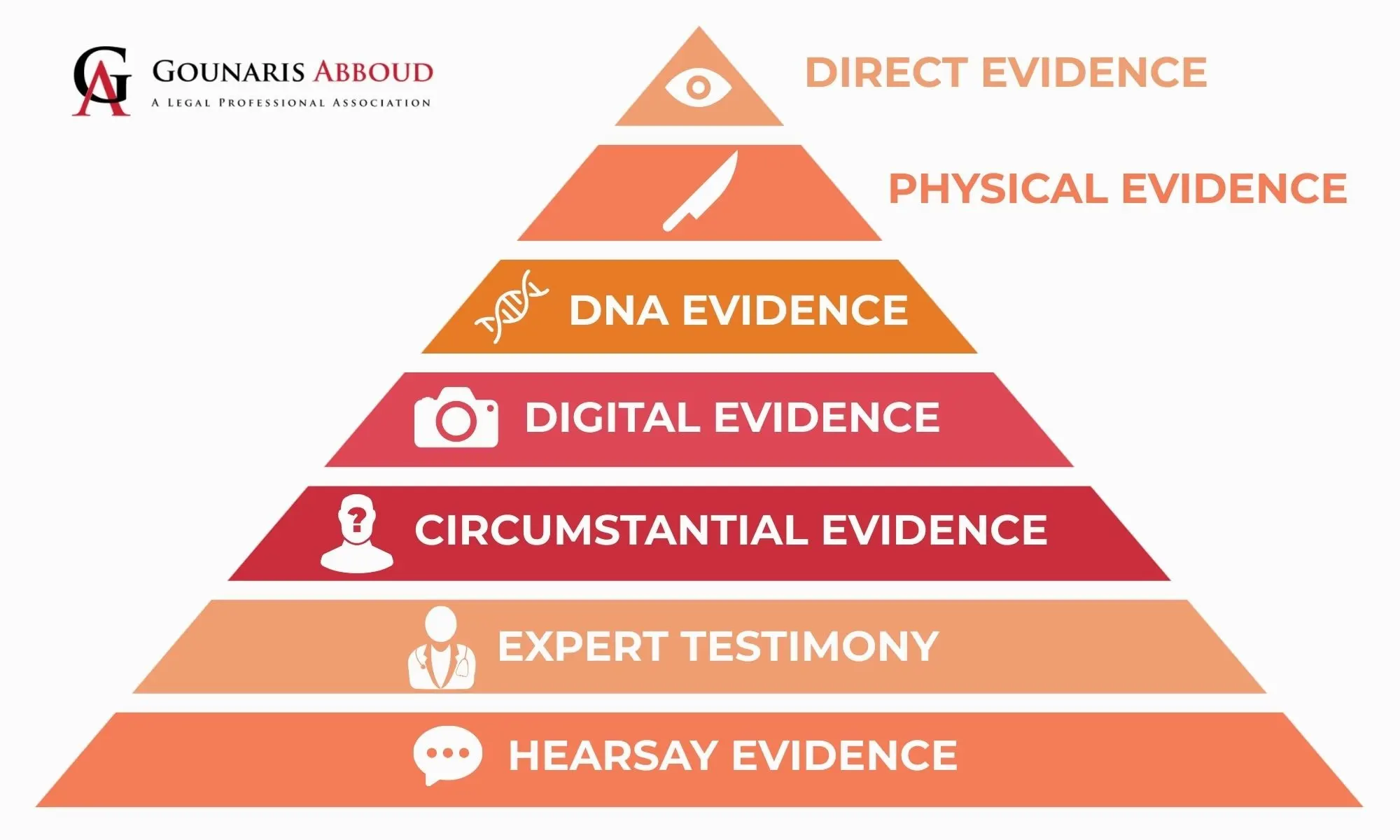
Before a trial begins, prosecutors will gather evidence to support their case, such as:
- Direct evidence: Eyewitness accounts or confessions that directly tie the defendant to a crime.
- Physical evidence: Objects such as weapons, fingerprints, drugs, or damaged property.
- DNA evidence: Biological material that links the defendant to the crime scene.
- Digital evidence: Text messages, GPS data, or surveillance footage.
- Circumstantial evidence: Indirect indicators like motive, opportunity, or accounts that the defendant was near the scene of the crime.
- Expert testimony: Scientific or professional analyses that support the State’s claims.
- Hearsay evidence: Out-of-court statements offered as truth (often inadmissible).
Even when plenty of evidence exists, it may not be sufficient or credible enough to secure a conviction. Experienced criminal defense attorneys have strategies for challenging each type of evidence.
For example, witness testimony is key to many cases, but an attorney can argue that a witness is not credible or that their story is inconsistent. Likewise, a police report from the crime scene may contain errors or omissions. Or the chain of custody may have been broken when law enforcement officers obtained biological evidence.
Even a small flaw can render critical evidence inadmissible in court.
Additionally, the defense can introduce and present alternative evidence to challenge the prosecution’s case. For example, a trustworthy witness could corroborate the defendant’s story, or the attorney might find digital records that show their client was somewhere else when the crime was committed.
5 Common Examples of Insufficient Evidence

Here are five situations where a lack of proper evidence can work in a defendant’s favor.
1. No Direct Witnesses or Video Footage
If no one saw the alleged crime and there were no cameras recording it, the case may rely entirely on circumstantial or speculative testimony. A defense attorney can emphasize the absence of direct evidence in order to cast reasonable doubt on the prosecution’s case.
2. Contradictory Testimony
Inconsistencies in statements from key witnesses may suggest that at least some of these statements were fabricated, creating reasonable doubt.
3. Missing Forensic Evidence
If law enforcement officers failed to collect fingerprints, DNA, or other trace evidence, a defense attorney can raise questions about who actually committed the crime.
4. Mishandled or Lost Evidence
Police departments are required to follow strict procedures for evidence handling. A broken chain of custody can invalidate the integrity of the case.
5. Unlawful Searches or Seizures
Evidence obtained through violations of the Fourth Amendment — such as a warrantless search — can be excluded from trial through a motion to suppress. Searches or arrests conducted without probable cause can weaken a case and sometimes lead to a dismissal.

Even if the charges seem serious, a lack of solid proof can be your strongest defense. Speak with a skilled Dayton criminal defense attorney today to explore your legal options.
When the Evidence Tells Conflicting Stories: A Powerful Defense Strategy
Sometimes the issue isn’t a lack of evidence, but conflict within the evidence. Examples include:
- Two eyewitnesses who provide completely different accounts.
- Testimony by the alleged victim that contradicts police body cam footage.
- Cell phone records that place a defendant miles away from the crime scene.
- Expert witnesses who disagree on how to interpret highly technical evidence.
An experienced criminal defense lawyer will highlight these inconsistencies to undermine the prosecution’s narrative and introduce reasonable doubt.
How Defense Attorneys Challenge Weak Evidence
When representing someone accused of a crime, a criminal defense attorney can:
- Request discovery of all of the prosecution’s evidence.
- Depose witnesses to uncover contradictions.
- Hire expert witnesses to dispute flawed forensic conclusions.
- File motions to suppress illegal or improperly collected evidence.
- Cross-examine witnesses to expose biases, memory lapses, or false statements.
A defense attorney can use these tactics to systematically dismantle the prosecution’s case and introduce reasonable doubt that their client committed the crime.
Filing Motions Due to Insufficient Evidence
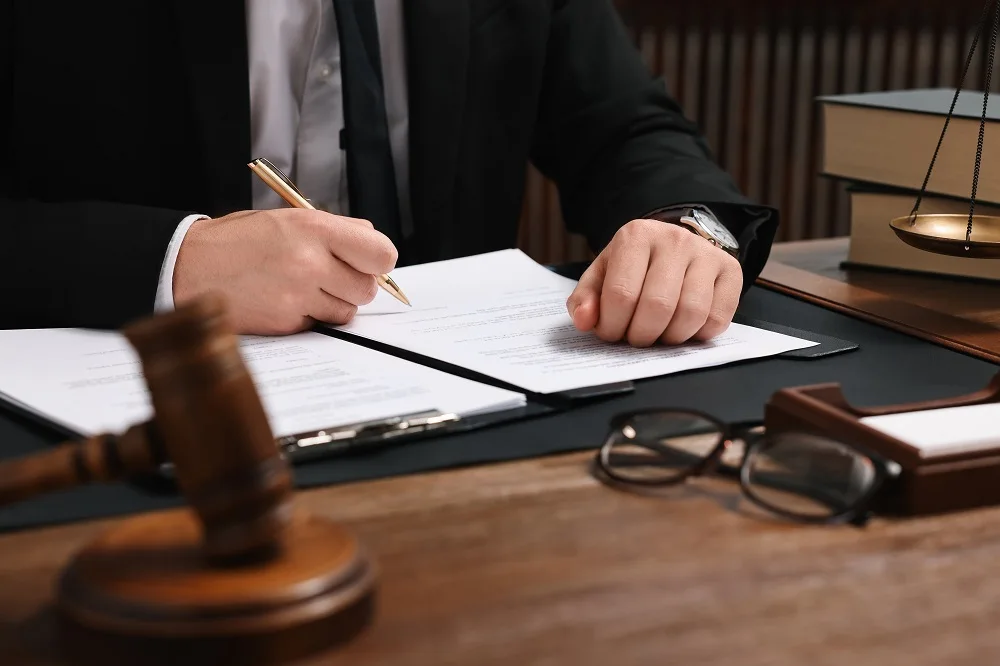
In cases where evidence is insufficient, flawed, or inadmissible, a defense attorney can file motions to protect their client.
When an attorney believes that some of the prosecution’s evidence is based on constitutional or procedural violations, they may file a motion to suppress evidence, which will prevent it from being presented to a jury.
If the prosecution’s evidence is so lacking that no reasonable jury would convict the defendant, a defense attorney may file a motion to dismiss, asking the court to drop the charges altogether.
Finally, during the trial or after the prosecution rests its case, the attorney may file a motion for judgment of acquittal. However, these motions are rarely granted.
Can a Case Be Dropped for Lack of Evidence?
Yes. If a prosecutor realizes that they cannot meet the burden of proof, they may choose to do one of the following:
- Reduce the charges
- Offer a favorable plea deal
- Dismiss the case entirely
Sometimes, a prosecutor will drop a case because the alleged victim has decided not to cooperate with the prosecution. However, prosecutors seldom dismiss cases or reduce charges voluntarily.
That’s why aggressive legal representation is crucial — your skilled criminal defense attorney can pressure the State to reconsider a weak case before trial even begins.
Why Insufficient Evidence Can Lead to Acquittal
In any criminal case, the judge will remind the jury that the defendant does not have to prove their own innocence. Instead, the burden of proof rests solely on the government. If the prosecution cannot provide clear, consistent, and admissible evidence, the jury must return a not guilty verdict.
Work with a Criminal Defense Lawyer Who Knows How to Win Weak Cases
When your future is on the line, you need a skilled defense attorney who knows how to expose weak, conflicting, or improperly obtained evidence.
Even cases that seem strong can unravel under scrutiny. Don’t let the prosecution go unchallenged — many charges are dismissed or reduced when the evidence doesn’t hold up in court.
Are you ready to fight back? Get started today with a private consultation to discuss your legal options.
